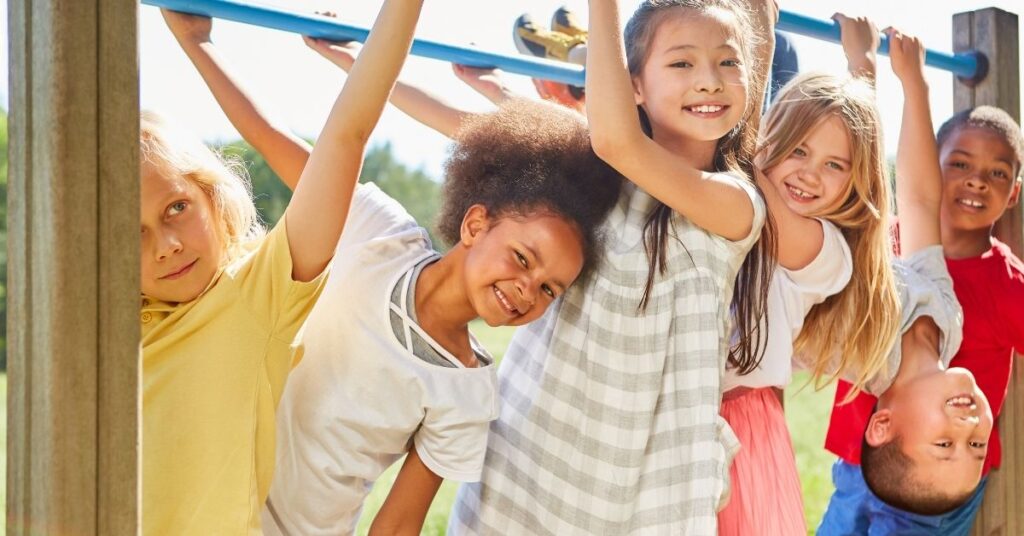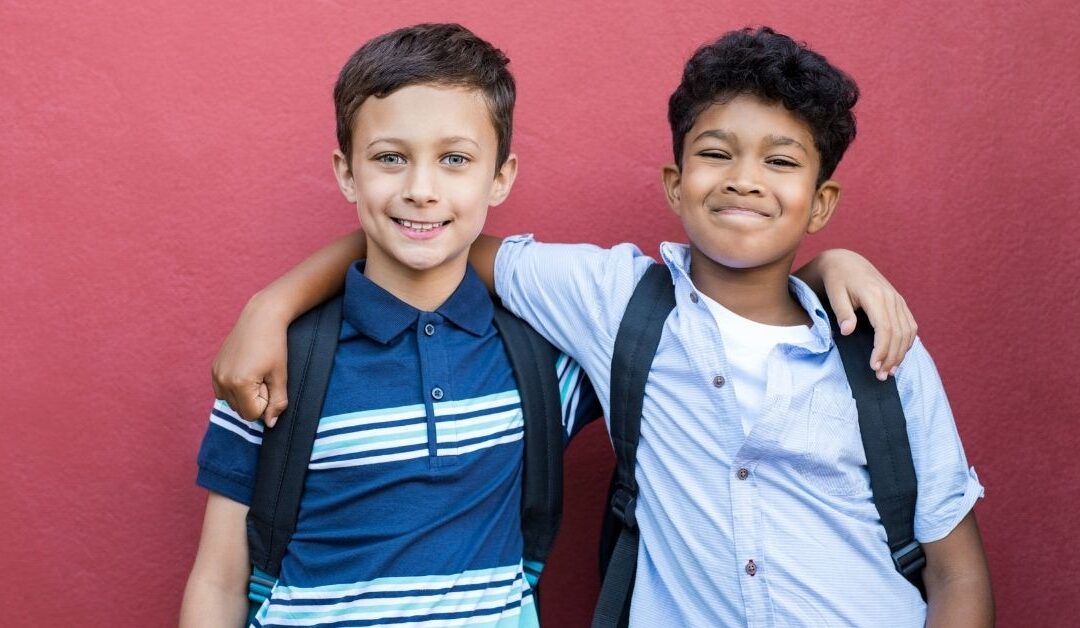Having friends is an important part of life. They bring a sense of belonging, boost our happiness, increase self-confidence and reduce stress. Friendships even keep us healthier later in life. Yet, many of our children with autism and ADHD have a difficult time making and keeping friends. So how can you help your autistic child make friends? I asked other autism bloggers and advocates to weigh in with their best advice for parents.
Why it’s hard for an autistic child to make friends

My son J struggled with making and keeping friends for most of his childhood. Whenever he played with other kids, he always wanted to direct the play, taking charge of the story lines and what they would play. We had countless discussions about how he needed to play with the other children – not try to control it. His speech therapist worked with him during their sessions on social skills training. We scheduled playdates with other kids who we thought were a better fit as friends for J. His therapist addressed so many issues with making friends.
Thankfully, some of it soaked in when he reached his later middle school years and now that he is in high school. He has a small group of friends and a best friend that he can hang out with and with whom he can play online video games. J loves singing, and he has connected with a group of other teenage boys who also love singing through Discord. He definitely still struggles with social situations that come up, but he improved by leaps and bounds over the years.
Why is it so difficult for our children with autism and ADHD to make friends? Some reasons include:
- Not understanding the social rules when having friends.
- Having difficulty communicating with other children such as not knowing how to start and keep conversations going.
- Misunderstanding facial expressions and body language.
- Appearing to be or being withdrawn from other children.
- Preferring to play by themselves.
- Approaching other children in unusual ways.
- Having emotional outbursts and being difficult to comfort.
- Using literal language and being too focused on rules.
- Lacking self-confidence.
- Being anxious in certain social situations.
- Not understanding their own emotions in relationships such as jealousy and anxiety.
With help, your autistic child can overcome these obstacles and make friends.
Best advice from autism bloggers who are parents, teachers and advocates

So how can you help your autistic child make and keep friends? I asked fellow autism bloggers who are parents, teachers and advocates to give their best advice to parents.
Amanda – The Autism Mama
“My best bit of advice is for parents to be active at their child’s school. Get to know parents, and even the students. This helps pave the way towards awareness and creating friendships for your child.
I would also recommend involving your child in a daytime or after school program for children with special needs. In this environment, every child has their own special trait, and kids can just be kids without the stigma of being perceived as different.”
Jenn Adams – Teach Love Autism
“A great way to support autistic children to make and keep friends is to help both the child and their friend to understand more about each other. Encourage them to talk together and with you the adult, about things that make them happy, mad, or upset. Foster that conversation with ideas on how to help the other as they may experience these emotions during their time together. This can allow the children to know one another better and develop a relationship based on understanding and communication.”
Chris Bonnello – Autistic Not Weird
“In my experience, most relationships in general are based on common ground. So my biggest tip would be to look out for children who share the same joys as your own child. This could be gaming-related, board game-related, TV-show-related; honestly, anything is valid. Something that both children can just geek out about for hours at a time, feeding off each other’s joy.
Children are still wise enough to know that small talk just doesn’t cut it in a meaningful friendship, and spending time with another person is far more valuable if you can talk about something you love. And like I said – regardless of your own opinions about video games, TV shows and other stuff that doesn’t appeal to us – anything is valid.”
Alix Strickland Frénoy – Special Learning House
“The key to helping autistic learners make friends is by building social skills. My favorite way to build social skills is by using social stories and video modeling with my little learners. Any tool that helps present social skills and friendships in a visual way is incredibly helpful. Beyond having the right tools in place, and teaching social skills outside of social situations first, the best thing you can do is practice, practice, practice!”
Sasha Long – The Autism Helper
“Give your children frequent opportunities to meet new peers. Take your kids to the park, schedule playdates, and sign them up for classes. Start this as early as possible. Along with this, work on ‘friendship skills’ at home with all of your kids. Practice sharing, shifting topics in conversations, and showing interest and relating to others.”
Jill Powell – Walking with Drake
“My best advice would be to reach out to teachers at your child’s school and ask to speak with the class. Doing so, helps teach the others kids about different abilities and helps them understand ‘how’ to connect with kids like my Drake. Children are very receptive and nonjudgmental when they understand.”
Jessica Ronne – Jess + the Mess
“I know with my Luke that he doesn’t so much want to interact with others, but he does desire the company of others so for our situation just allowing him to be present is how he would build those relationships.”
Penny Williams – Parenting ADHD and Autism
“Structure social interactions so that your child can succeed. For example, if your child is more comfortable at home than at a friend’s house, invite friends over to play. If your child can only handle 30 minutes of play with peers before behavior deteriorates, then limit interactions with others to a time frame where your child will end on a positive note. As your child’s social skills improve, keep extending the boundaries a bit. When interactions with friends are positive, the other children will continue to want to spend time with your child.”
A big thank you to the bloggers who provided advice! For more information about helping your autistic child make and keep friends, check out this article.
Do you have other tips to help your child make friends? If so, leave a comment so that we can share and encourage one another along this journey!







